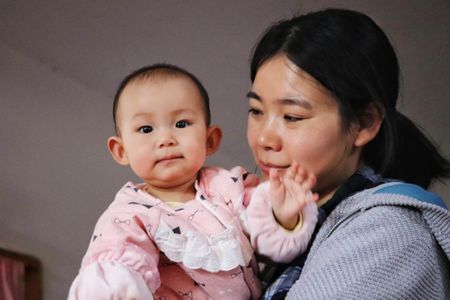Early childhood development is widely seen as 1) crucial for the future of our society and economy and 2) woefully inadequate. Both the Senate and the House of Representatives have proposed bills to offset the fixed and operating costs due to COVID-19 with funds dedicated to opening and re-opening centers. The Early Head Start – Child Care Partnership (EHS-CCP) program can be a model to create a new – and better – “normal”. The EHS-CCP program can support our youngest and most vulnerable citizens AND reinvigorate the early childcare industry throughout communities.
How to Promote Racial Justice Through Early Childcare
Cathleen Armstead, Ph.D.

Head Start began in 1964 as part of President Johnson’s War on Poverty. Head Start emerged from the advocacy and activism of the Civil Rights Movement. Honoring and working within that legacy requires using a racial equity lens to implement EHS-CCP programs to begin addressing systemic racism and racial injustice for children, families, teachers, and childcare business owners.
Promoting racial equity can begin in the early childhood industry through:
1) Anti-racism curriculum
2) Helping young children understand and heal from racism
3) Anti-bias training for early childhood teachers
4) Providing resources for families to survive, thrive and advocate for better communities
5) Equalizing wages and opportunities for people of color
6) Investing in the industry in low-income communities and communities of color
The EHS-CCP program is neither perfect nor a panacea, but it is a here-and-now opportunity.
EHS-CCP is a comprehensive program that partners community, faith-based, for-profit early childcare providers with state-supported childcare subsidies and Early Head Start resources. The funding from the Federal government, the regulations that ensure high quality care, combined with state supported subsidies and an emphasis on community partners is what makes the EHS-CCP program successful.
Children
Improving early childhood education through the EHS-CCP program directly benefits low-income children, who are disproportionately children of color. James Heckman, a leading economist finds a 13% rate of return on investment in early childhood.
The goal of reading by eight can be accomplished with nurturing teachers, appropriately challenging environments, play-based learning, and books. Books to play with, books to read, books to hear, books to touch (and taste). EHS-CCP can enhance learning environments of community childcare partners. Federal funds can buy learning materials (BOOKS!), implement an intentional and play-based curriculum, and ensure low teacher-child ratios (1:4) with a small group size (no more than eight). EHS-CCP brings to community based childcare partners books by and about people of color, celebrations of July 4th and Juneteenth, and a commitment to promoting racial equity.
Implementing EHS-CCP with a racial equity lens includes being a trauma-informed organization with training on implicit bias. Many Early Head Start programs are trauma-informed organizations that define trauma to include familial events (intimate partner violence, depression, substance abuse, divorce) and community events (poverty, community violence, and racism). Trauma-based organizations include an understanding of trauma, provide safe and stable environments, practice cultural humility and responsiveness, are compassionate and dependable, work in collaboration with their clients for empowerment, and emphasize resilience and recovery. Early Head Start knowledge and resources can enable partners such as small childcare centers and family care become trauma-informed environments.
In an early childhood environment, an understanding of trauma recognizes that a child who throws blocks, knocks over a table, or curses at the teacher – is traumatized. Instead of resorting to suspension or expulsion, a trauma informed organization provides that teacher with resources (knowledge, training, space, and time to recover, additional staff) to work with that child. Teachers are also given resources and strategies in working with their own implicit biases.
Families
The coronavirus pandemic brought into sharp relief the different choices available for low-income families. The “choice” between staying safe with their children at home or earning enough money to pay the rent and buy the food is not a choice in any meaningful sense of the word. The lack of choices is even more apparent among “essential workers” which typically includes health care, community work, industrial, commercial and residential facilities, along with food service and public transportation.
According to the Economic Policy Institute, essential workers have not received the most basic health and safety measures to combat the spread of the coronavirus. Half of the essential industries have a median hourly wage that is less than the median wage of non-essential workers. Essential workers in the food and agriculture industry have the lowest median hourly wage, at $13.12. People of color are the majority of essential workers in food and agriculture (50%) and in industrial, commercial, residential facilities and services (53%).
Providing free, federally funded early childhood development that is safe and high-quality addresses the choices these families must make.
EHS-CCP brings parent engagement to the early childhood industry as well as a connection to social services. EHS-CCP Family workers (with a low caseload) can work with families to achieve family goals from learning English, to job skills, to advocating for their children in school and in the community.
Employees
Investing in early childhood education includes an investment in professional development – both in institutions and individuals. EHS-CCP programs are required to allocate 2.5% of total grant funding to training and technical assistance.
Example: One EHS-CCP program partnered with a local college to create an Early Childhood Educators (ECE) Institute. This program was funded jointly by the college and Early Head Start funds. The ECE Institute helped early childcare teachers to earn a national infant/toddler certificate which translated to college credit for a two-year and four-year degree. Funding for advisors and tutors was provided by the EHS-CCP program with tuition provided by a local childcare advocacy group, college scholarships, and EHS-CCP funding.
Example: An EHS-CCP program invested training and technical assistance funds in business development for small business owners. Working with an organization, funded by the Small Business Association, and staffed by volunteer business professionals, a specialized curriculum was developed that ranged from creating a business plan, to securing additional funding, to leadership and employee engagement.
Institutions need funds to develop early childcare specific programs and individuals need support to access these opportunities. EHS-CCP provides funds for both purposes.
Professional development must be accompanied by increasing wages as well as equalizing wages. The Center for the Study of Employment in Childcare reports that African American early education teachers are likely to earn less than all other racial/ethnic groups in the early childhood workforce nation-wide. Even when controlling for educational attainment, African American workers still earn lower wages, in part because African Americans care for younger children.
Paying equal wages to early childhood educators, regardless of race or the age of children promotes racial equity. Promoting racial equity requires vigilance to examine the statistics of the early childhood industry in the community and addresses bias in hiring and wage negotiations.
Industry
A recent report indicated that nearly half of all childcare spaces will be lost permanently. Many of those centers and family childcare providers are minority-owned. Both the House and Senate bills provide support for centers that lost enrollment or closed due to COVID-19. However, there needs to be more of an emphasis on minority-owned childcare. Priority can be given to owners of color. The SBA administration provides loans and grants for minority-owned businesses and now is the time to emphasize minority-owned early childcare.
One source of funding specifically for low-income childcare is Low Income Investment Fund (LIIF) which uses capital, capacity building and public advocacy to build sustainable community-based systems to support childcare facility financing and development. Organizations, building on such a model, can provide similar sources of support to minority owned childcare.
The EHS-CCP model provides an opportunity for funding multiple childcare communities in low-income neighborhoods. The goal of the grant is to improve early childhood development throughout the community. Targeting childcare businesses that are owned and operated by people of color can promote racial equity.
EHS-CCP grant funding is currently in the application stage and programs are expected to start in 2021 in a post-pandemic society. The most pressing needs remain: the need for early childhood education that is high-quality and affordable; the need to support families; the need to address underpaid childcare workers and equalize wages and opportunities for people of color; and the need to support racial equity in the first institution our children see.



Dr. Cathleen Armstead, the owner of Sunshine Nonprofit Solutions, provides strategic planning, coaching, and grant writing to nonprofit organizations working with children and families. With twenty years of experience in the Head Start/Early Head Start world, she continues to advocate and work for social, economic and racial justice.
